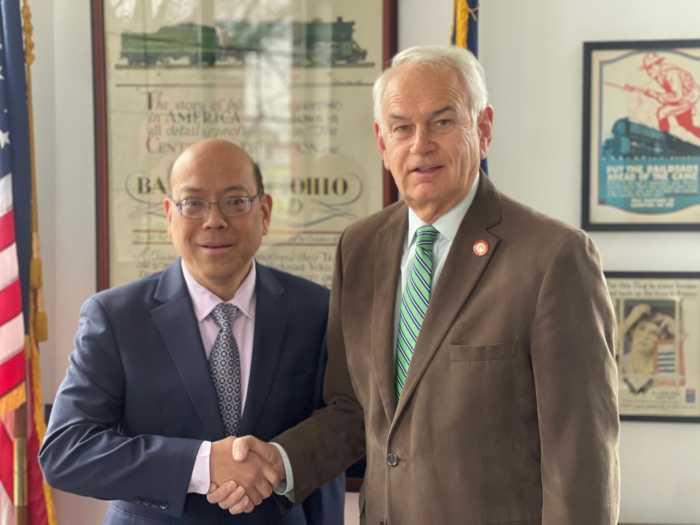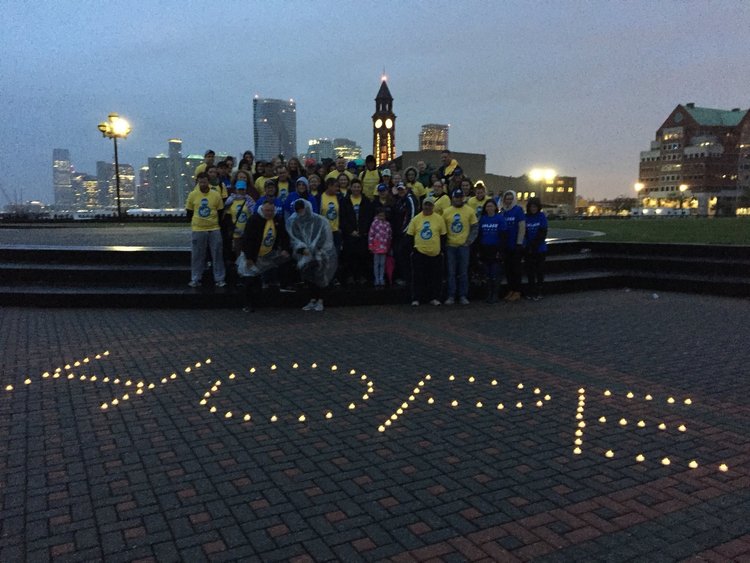By Dustin Brown
For the third time this year, more than 100,000 borough bus riders scampered for new rides as employees for three private bus companies walked off the job in what they billed a “prolonged strike,” and Borough President Helen Marshall joined the line.
“When it’s an inconvenience, you don’t get used to it,” said one woman as she waited for a city bus at the corner of Main Street and Union Turnpike, a trip that would add a half hour onto her morning commute to Jamaica.
Drivers and mechanics from Queens Surface Corp., Triboro Coach and Jamaica Buses put up picket lines just past midnight Monday morning to protest the city’s decision to back out on its original promise to increase the funding of the union’s medical plan.
Only a signed contract would prompt them to put the buses back on the road, they said.
“We ain’t leaving here until this is over with,” said the drivers’ shop steward, Chuck Petrone of the Transport Workers Union Local 100, as he walked the picket line with a few dozen workers outside the Triboro Coach depot Monday afternoon.
Borough President Helen Marshall marched with the striking workers Monday at the headquarters of Queens Surface.
“This was something that was promised to them and it’s something that is necessary. These are hardworking people and they need these benefits,” Marshall said Monday after a meeting of the Borough Board. “We depend upon our buses in Queens.”
The three companies carry a combined load of 115,000 passengers every day, with many commuters relying on their express bus service to get into Manhattan from various points in Queens. The service is heavily subsidized by the city.
Only three months ago the longstanding contract dispute appeared to have been resolved when the union signed an agreement with management securing a 4 percent annual wage hike — slightly less than the 5 percent the union originally demanded — and increased pension benefits.
But the contract was contingent on approval by the city, which has since reneged on its promise to increase its funding of medical benefits at the same rate it negotiated for municipal employees, union officials said.
“That would destroy our medical plan and, more importantly, it would destroy our people,” said Eddie Kay, the director of education and organizing for Local 100, which represents employees at the private lines.
Whereas the contract negotiated with District Council 37, the municipal workers’ union, raises health benefits funding by 19 percent over two years, the city has only offered 3.51 percent to Local 100.
“Not even a dog can get medical attention at that level of funding,” Local 100 President Roger Toussaint said in a press release which described the job action as a “prolonged strike.”
The Bloomberg administration has denied playing any role in the contract dispute.
“The city is not a party to these negotiations,” said Jordan Barowitz, a spokesman for Mayor Bloomberg. “The labor (union) has to negotiate their deal with the management. We are not the management in this situation.”
Barowitz said the increase in health coverage has been linked to the Consumer Price Index since 1993, but union leaders stress that medical costs have skyrocketed at a rate much higher than that.
Queens Surface spokesman Michael Gill said it was up to the city to resolve the dispute, because only the city can fund the medical coverage.
This week’s strike is the third staged by the employees of the private bus lines.
The contract expired in January 2001 and union leaders have periodically threatened to walk out since late December. A wildcat strike that was spontaneously staged by workers in January without union sanction ended hours after it began, but another strike called by the union at the end of February lasted for two days.
An end to the dispute had been announced in March when a coalition of city officials promised to protect the employees’ jobs and pension benefits if the private bus contracts went out to bid.
City Councilman Tony Avella (D-Bayside), the chairman of the Council’s Subcommittee on Zoning and Franchises, said the city does in fact play an integral role in the negotiations because the bus companies and union cannot ratify a contract without the city’s approval.
“The city has always been part of the negotiations,” Avella said in a phone interview Monday. “The city is a part of this. I just don’t understand their response.”
Avella said negotiations were expected to resume sometime soon.
The city Department of Transportation enacted a contingency plan with livery cabs and dollar vans shuttling passengers along key routes between bus stops and subways, which experienced a surge in ridership Monday morning. Service along the No. 7 train was delayed between five and 15 minutes because of heavy passenger loading.
For the commuters accustomed to express buses into Manhattan that always have seats available, the alternatives were less than ideal.
“It screws it up because now I’ve got to take the bus to the subway,” said John Rodriguez, 39, a paralegal. “You have to put up with the shoving, you don’t get a seat.”
Reach reporter Dustin Brown by e-mail at Timesledger@aol.com or call 229-0300, Ext. 154.
































